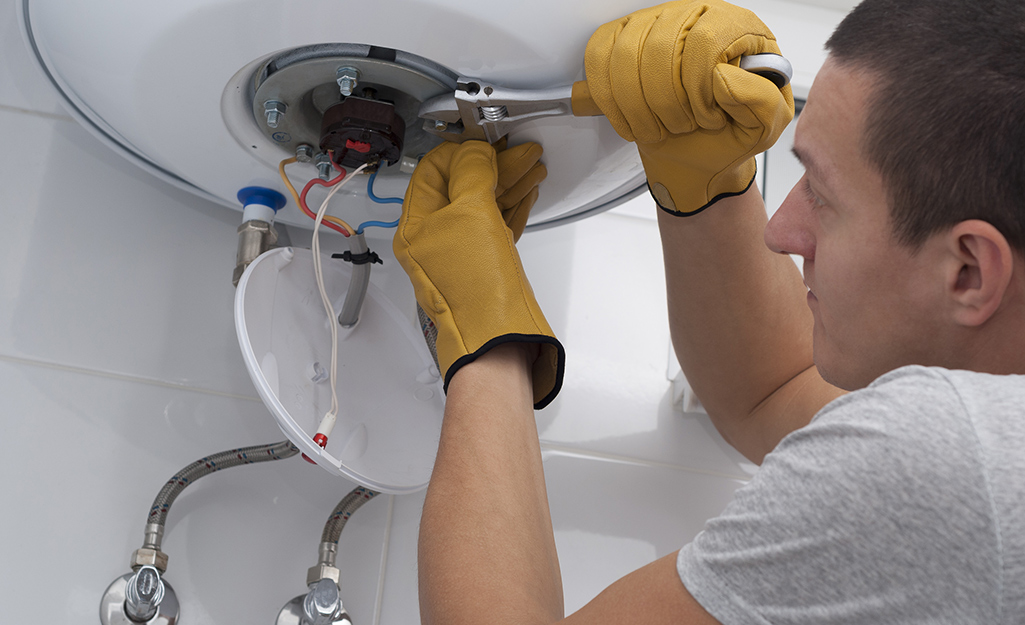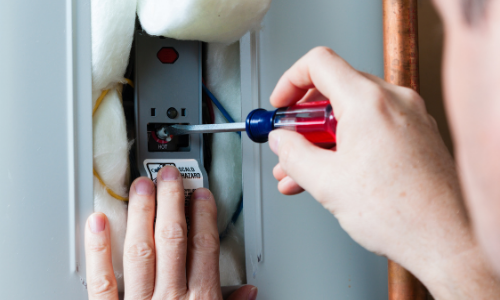Dealing with the Typical Water Heater Crisis Scenarios
Dealing with the Typical Water Heater Crisis Scenarios
Blog Article
Do you find yourself searching for facts and techniques about Warning Signs You Need Water Heater Repairs?

A water heater is among the most essential basic home appliances that can be found in a house. With hot water heater, you don't require to go through the anxiety of heating water by hand each time there is a requirement to take a bath, do the laundry, or the recipes. However, there is constantly a possibility that your hot water heater would certainly break down as with a lot of mechanical devices.
It is very important to note any type of little breakdown and also tackle it rapidly before things get out of hand. A lot of times, your hot water heater starts to malfunction when there is a build-up of debris as a result of continual use. As a precaution, regular flushing of your hot water heater is advised to prevent sediment accumulation and also protect against functional failure.
Typical hot water heater emergency situations and how to handle them
Leaking hot water heater storage tank.
In this circumstance, you should transform off your water heating unit, permit it to cool down, as well as very carefully look for the source of the problem. At times, all you need to do is to tighten up a few screws or pipe links in cases of small leaks. If this doesn't work and also the leak persists, you could require to use the solutions of a specialist for an appropriate substitute.
Rising and fall water temperature.
Your water heating system could start producing water of various temperatures normally ice scalding or cool hot. There may be a need to change either the heating or the thermostat device of your water heating unit.
Inadequate hot water
It might be that the water heater can't sustain the warm water demand for your house. You can update your water heater to one with a bigger capacity.
Tarnished or odiferous water
You require to know if the issue is from the water or the container resource when this takes place. You are certain that it is your water heater that is faulty if there is no funny odor when you run chilly water. The smelly water can be triggered by corrosion or the buildup of microorganisms or debris in the water heater tank. You can try flushing out your tank or replacing the anode if the problem persists once you notice this. The function of the anode is to clear out germs from your storage tank. Considering that the anode rod replacement requires an extensive understanding of your water heater, you will certainly require the assistance of a professional.
Conclusion
Some homeowners overlook little caution and minor faults in their water heater device. This only leads to more damages and a feasible total break down of your device. You ought to deal with your hot water heater faults as soon as they come near avoid even more costs and unneeded emergency troubles.
With water heaters, you do not need to go via the tension of home heating water manually every time there is a need to take a bathroom, do the laundry, or the meals. Your water heater can start creating water of various temperatures generally ice scalding or cool hot. It might be that the water heater can not support the warm water demand for your apartment or condo. If there is no funny odor when you run chilly water, after that you are specific that it is your water heating system that is defective. The odiferous water can be caused by corrosion or the accumulation of germs or debris in the water heater storage tank.
Common Water Heater Issues and What You Should Do
What Type of Water Heater Do You Have?
Before we begin it’s first important that you identify the type of water heater you have on your property. There are two main types of water heaters out there: conventional and high efficiency.
Both of these types of products typically use either gas or electricity to heat power. There are also solar water heaters that use a thermal collector on the roof or yard to heat the water.
While these models are not as common, they can cut heating costs in half. In this article, we will focus on conventional and high efficiency.
How Do My Electric and Gas Water Heater Work?
Though they look similar, electric and gas water heaters work very differently. It’s important to know their basic function because often problems can be specific to the heating source.
In the electric model, a thermostat on the side of the machine detects the temperature of the water in the tank. When the temperature needs to rise electricity flows to a heating element suspended in the water.
Gas models also use a thermostat device — typically with a mercury sensor at the tip and an additional sensor called a thermocouple. The thermocouple detects whether the pilot light is on and controls the flow of gas.
When the thermostat drops below the appropriate level gas is released which becomes ignited by the pilot light. The flame heats the bottom of the water tank which causes hot water to rise and cold water to drop.
This natural circulation continues until the water reaches the desired temperature. Then, the thermostat triggers the gas control valve to shut off the flow of gas.
What Are the Most Common Issues and How Do You Fix Them?
https://happyhiller.com/blog/common-water-heater-issues-and-what-you-should-do/

Hopefully you enjoyed reading our part about Common Hot Water Heater Problems. Thank you so much for finding the time to read through our content. If you liked our blog posting plz don't forget to share it. I cherish reading our article about Common Hot Water Heater Problems.
Plumbing crisis? Reach out! Report this page